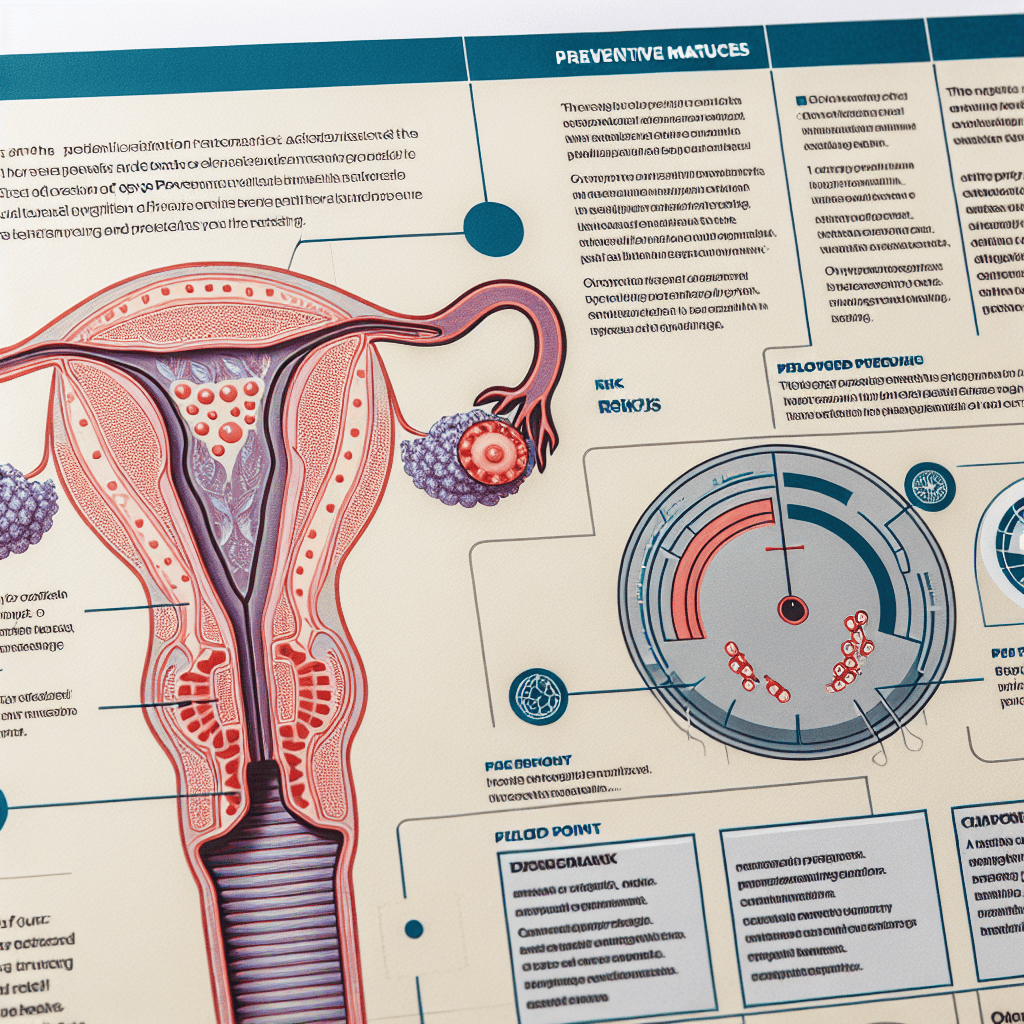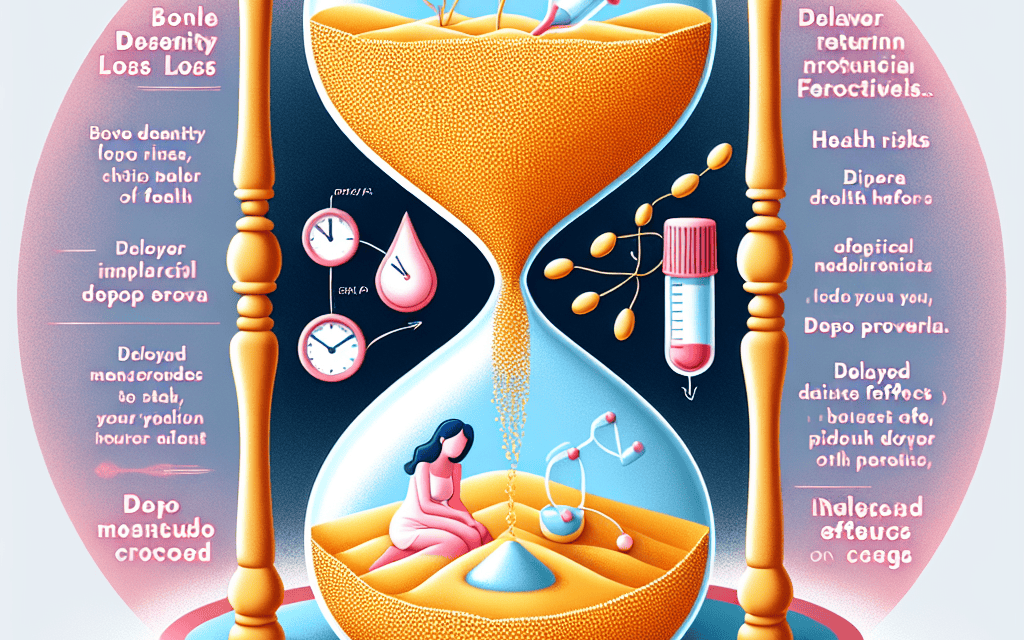Understanding the Risks of Depo Provera in Women’s Health

Depo Provera, a popular contraceptive injection, has been a significant player in women’s reproductive health for decades. While it offers a convenient and effective method of birth control, it is not without its risks and side effects. This article delves into the complexities of Depo Provera, examining its benefits, potential risks, and the broader implications for women’s health. By understanding these factors, women can make informed decisions about their contraceptive choices.
The Mechanism of Depo Provera
Depo Provera, also known as the depot medroxyprogesterone acetate (DMPA) injection, is a form of long-acting reversible contraception. It is administered as an intramuscular injection every three months, providing a convenient alternative to daily oral contraceptives. The active ingredient, medroxyprogesterone acetate, is a synthetic form of the hormone progesterone.
Progesterone plays a crucial role in the menstrual cycle and pregnancy. In the context of contraception, Depo Provera works primarily by inhibiting ovulation. It thickens the cervical mucus, making it difficult for sperm to enter the uterus, and alters the uterine lining, reducing the likelihood of implantation.
While the mechanism of action is straightforward, the effects of Depo Provera on the body are complex and can vary significantly among individuals. Understanding these effects is essential for evaluating the risks associated with its use.
Effectiveness and Convenience
One of the primary reasons women choose Depo Provera is its high effectiveness. When used correctly, it is over 99% effective in preventing pregnancy. This level of efficacy is comparable to other long-acting contraceptive methods, such as intrauterine devices (IUDs) and implants.
The convenience of Depo Provera is another significant advantage. Unlike daily oral contraceptives, which require consistent daily intake, Depo Provera requires only four injections per year. This makes it an attractive option for women who prefer a low-maintenance contraceptive method.
However, the convenience and effectiveness of Depo Provera must be weighed against its potential risks and side effects, which can impact a woman’s overall health and well-being.
Potential Side Effects of Depo Provera
While Depo Provera is effective in preventing pregnancy, it is associated with a range of side effects that can affect women’s health. These side effects can vary in severity and duration, and understanding them is crucial for making informed decisions about its use.
Menstrual Changes
One of the most common side effects of Depo Provera is changes in menstrual bleeding patterns. Many women experience irregular bleeding, spotting, or even amenorrhea (absence of menstruation) while using the injection. These changes can be unsettling and may lead to concerns about reproductive health.
For some women, the absence of menstruation is a welcome side effect, providing relief from menstrual cramps and heavy bleeding. However, for others, the unpredictability of bleeding patterns can be a source of anxiety and discomfort.
It is important for women to discuss these potential changes with their healthcare provider before starting Depo Provera, as understanding what to expect can help alleviate concerns and ensure a more positive experience.
Bone Density Loss
One of the more serious risks associated with long-term use of Depo Provera is bone density loss. Studies have shown that women who use Depo Provera for extended periods may experience a decrease in bone mineral density, which can increase the risk of osteoporosis and fractures later in life.
The mechanism behind this side effect is related to the suppression of estrogen production by Depo Provera. Estrogen is essential for maintaining bone health, and its reduction can lead to bone loss over time.
Healthcare providers often recommend that women using Depo Provera for more than two years undergo regular bone density screenings and consider lifestyle changes, such as increased calcium and vitamin D intake, to mitigate this risk.
Weight Gain
Weight gain is another common concern among women using Depo Provera. While not all women experience significant weight changes, some report an increase in body weight after starting the injection.
The exact cause of weight gain with Depo Provera is not fully understood, but it may be related to changes in appetite, metabolism, or fluid retention. It is important for women to monitor their weight and discuss any concerns with their healthcare provider.
Maintaining a healthy diet and regular exercise routine can help manage weight changes and promote overall well-being while using Depo Provera.
Mood Changes and Depression
Mood changes, including depression and anxiety, have been reported by some women using Depo Provera. Hormonal fluctuations can impact mood and emotional well-being, and it is essential for women to be aware of these potential changes.
Women with a history of depression or mood disorders should discuss their mental health history with their healthcare provider before starting Depo Provera. Monitoring mood changes and seeking support from mental health professionals can help manage these side effects effectively.
Other Potential Side Effects
In addition to the side effects mentioned above, Depo Provera may cause other less common side effects, including:
- Headaches
- Breast tenderness
- Decreased libido
- Acne
- Hair loss or excessive hair growth
While these side effects are generally less severe, they can still impact a woman’s quality of life. Open communication with healthcare providers is essential for addressing any concerns and finding suitable solutions.
Long-Term Health Implications
Beyond the immediate side effects, the long-term use of Depo Provera can have broader health implications that warrant careful consideration. Understanding these implications is crucial for women who are considering or currently using this contraceptive method.
Fertility and Return to Normal Cycles
One of the primary concerns for women using Depo Provera is the potential impact on fertility after discontinuation. While Depo Provera is a reversible contraceptive method, it can take some time for fertility to return to normal after stopping the injections.
On average, it may take several months to over a year for ovulation and regular menstrual cycles to resume. This delay can be a source of frustration for women who wish to conceive soon after discontinuing Depo Provera.
It is important for women to plan accordingly and discuss their family planning goals with their healthcare provider to ensure a smooth transition when discontinuing Depo Provera.
Impact on Cardiovascular Health
The impact of Depo Provera on cardiovascular health is an area of ongoing research. Some studies suggest that long-term use of Depo Provera may be associated with an increased risk of cardiovascular events, such as blood clots and stroke.
Women with pre-existing cardiovascular conditions or risk factors, such as smoking or obesity, should discuss these risks with their healthcare provider before starting Depo Provera. Regular monitoring and lifestyle modifications can help mitigate potential cardiovascular risks.
Cancer Risk
The relationship between Depo Provera and cancer risk is complex and not fully understood. Some studies have suggested a potential link between long-term use of Depo Provera and an increased risk of breast cancer, while others have found no significant association.
Conversely, Depo Provera may offer protective benefits against certain types of cancer, such as endometrial and ovarian cancer. These potential benefits and risks should be carefully weighed when considering Depo Provera as a contraceptive option.
Impact on Bone Health
As mentioned earlier, long-term use of Depo Provera can lead to bone density loss, increasing the risk of osteoporosis and fractures. This risk is particularly concerning for young women who have not yet reached their peak bone mass.
Women using Depo Provera should be proactive in maintaining bone health through lifestyle modifications, such as weight-bearing exercises and adequate calcium and vitamin D intake. Regular bone density screenings can also help monitor bone health over time.
Psychological and Emotional Well-being
The psychological and emotional impact of Depo Provera should not be overlooked. Hormonal fluctuations can affect mood and mental health, and women may experience changes in their emotional well-being while using the injection.
Open communication with healthcare providers and mental health professionals can help address any psychological concerns and ensure that women receive the support they need while using Depo Provera.
Case Studies and Real-Life Experiences
To gain a deeper understanding of the risks and benefits of Depo Provera, it is valuable to examine real-life experiences and case studies. These stories provide insights into how women navigate the complexities of using this contraceptive method.
Case Study 1: Managing Menstrual Changes
Sarah, a 28-year-old woman, started using Depo Provera to manage her heavy menstrual bleeding and painful cramps. While she experienced relief from her symptoms, she also encountered irregular bleeding and spotting, which caused her concern.
After discussing her experiences with her healthcare provider, Sarah learned that these changes were common and could improve over time. With this reassurance, she continued using Depo Provera and found that her bleeding patterns stabilized after a few months.
Sarah’s experience highlights the importance of understanding potential side effects and maintaining open communication with healthcare providers to address any concerns.
Case Study 2: Addressing Bone Health Concerns
Emily, a 35-year-old woman, had been using Depo Provera for over five years when she learned about the potential impact on bone density. Concerned about her long-term bone health, she decided to undergo a bone density screening.
The screening revealed a slight decrease in bone mineral density, prompting Emily to make lifestyle changes to support her bone health. She increased her calcium and vitamin D intake and incorporated weight-bearing exercises into her routine.
Emily’s proactive approach to managing her bone health demonstrates the importance of regular monitoring and lifestyle modifications for women using Depo Provera long-term.
Case Study 3: Navigating Mood Changes
Jessica, a 30-year-old woman, experienced mood changes and increased anxiety after starting Depo Provera. Concerned about these changes, she sought support from a mental health professional.
Through therapy and lifestyle adjustments, Jessica was able to manage her mood changes effectively. She also maintained regular communication with her healthcare provider to monitor her mental health while using Depo Provera.
Jessica’s experience underscores the importance of addressing psychological and emotional well-being while using hormonal contraceptives.
Case Study 4: Fertility Planning
Rachel, a 32-year-old woman, decided to discontinue Depo Provera to start a family. Aware of the potential delay in returning to fertility, she began planning well in advance.
After stopping the injections, Rachel experienced a delay in the return of her menstrual cycles. However, with patience and support from her healthcare provider, she was able to conceive within a year.
Rachel’s experience highlights the importance of family planning and understanding the potential impact of Depo Provera on fertility.
Case Study 5: Balancing Risks and Benefits
Laura, a 29-year-old woman, carefully weighed the risks and benefits of Depo Provera before starting the injections. She considered her lifestyle, health history, and family planning goals in her decision-making process.
With the support of her healthcare provider, Laura was able to make an informed choice that aligned with her needs and priorities. She continues to monitor her health and communicate with her provider to ensure a positive experience with Depo Provera.
Laura’s story emphasizes the importance of personalized decision-making and informed consent when choosing a contraceptive method.
Conclusion: Making Informed Decisions About Depo Provera
Depo Provera offers a convenient and effective contraceptive option for many women, but it is not without its risks and side effects. Understanding these risks is essential for making informed decisions about its use.
By examining the potential side effects, long-term health implications, and real-life experiences of women using Depo Provera, we gain valuable insights into the complexities of this contraceptive method. Open communication with healthcare providers, regular monitoring, and personalized decision-making are crucial for ensuring a positive experience with Depo Provera.
Ultimately, the choice to use Depo Provera should be based on a thorough understanding of its benefits and risks, as well as individual health needs and family planning goals. By empowering women with knowledge and support, we can help them make informed decisions that prioritize their health and well-being.





